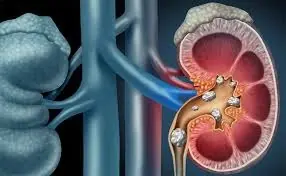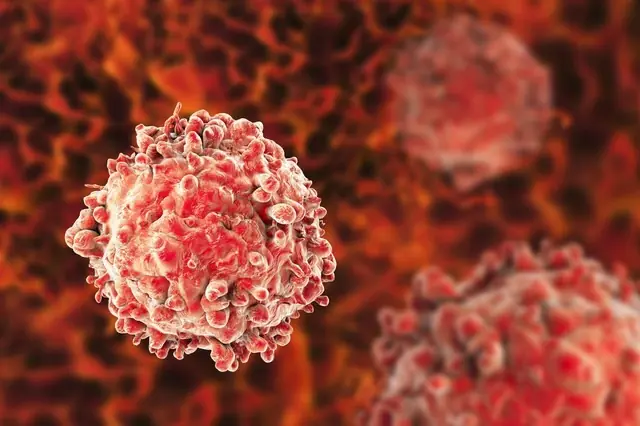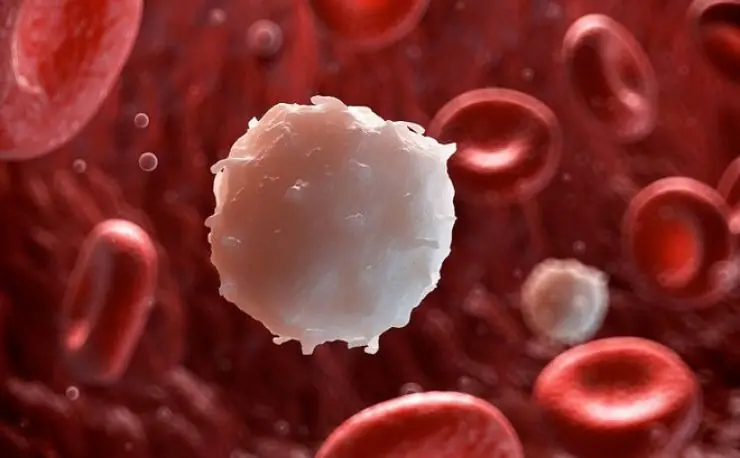
Banish Throat Mucus: Effective Home Treatments for a Clearer Throat (Evidence-Based)
Banish Throat Mucus: Effective Home Treatments for a Clearer Throat (Evidence-Based)

Experiencing excessive throat mucus can be incredibly frustrating, leaving you with an irritating sensation of something constantly stuck in your throat and a persistent urge to clear it. While the body naturally produces mucus to protect against infections, an overproduction or thickening of this mucus can be a symptom of various underlying conditions, ranging from common colds and allergies to more chronic issues like asthma or acid reflux.
Sometimes, a simple cough isn't enough to dislodge stubborn throat mucus. If you're constantly battling a phlegmy throat, it's crucial to identify and address the root cause. For instance, if irritants or allergens are the culprits, avoiding these triggers can significantly reduce mucus production. For mucus buildup due to digestive issues or infections, natural home remedies such as saline gargles, steam inhalation, ginger, or honey can effectively loosen phlegm and provide much-needed relief.
Read on to uncover the common reasons behind excessive throat mucus and explore a range of proven home treatments to help you breathe and speak more comfortably.
Understanding Excessive Mucus in the Throat
Our bodies constantly produce mucus as a vital part of our immune system, acting as a protective barrier to trap bacteria, viruses, and other foreign particles, preventing them from entering our respiratory system. In fact, our noses alone produce around two pints of mucus daily, which typically drips down the back of the throat unnoticed. Problems arise when this mucus becomes thicker, more noticeable, or when an excessive amount is produced, especially if it changes to an unusual color like dark yellow, green, or brown, signaling an underlying issue.
Here are the common causes of excessive mucus in the throat:
-
Postnasal Drip: Often, a persistent buildup of mucus in the throat is referred to as postnasal drip or postnasal discharge. The American Academy of Otolaryngology explains that irritation from colds, allergies, or hormonal changes can lead to excessive thin mucus secretions dripping down the throat. Conversely, sinus infections or dryness in the throat can result in a thick mucus buildup. This constant drip can cause irritation, swelling, discomfort, and that nagging sensation of having something perpetually stuck in your throat.
-
Heartburn / Acid Reflux: A very common, often overlooked, reason for constant phlegm is heartburn or acid reflux. This occurs when stomach acid travels back up the esophagus, irritating the delicate lining of the upper respiratory system. You might also experience a bitter taste in your mouth or a burning sensation in your chest. Dr. Jennifer Robinson on WebMD points out that you can even experience reflux without the classic heartburn symptoms, a condition known as laryngopharyngeal reflux (LPR) or "silent reflux." This acid irritation in the back of your throat and nasal airways triggers inflammation, leading to excessive throat clearing, a persistent cough, and a feeling of a lump in your throat.
-
Allergies: Allergic reactions can cause significant irritation in the back of the throat, prompting increased mucus production. Allergies are your body's immune response to harmless substances (allergens), commonly caused by seasonal pollen, dust mites, pet dander, or mold. The Asthma and Allergy Foundation of America lists throat mucus as a symptom of allergic reactions, usually accompanied by sneezing, itchy eyes, and a runny nose.
-
Tip: To reduce allergy-induced mucus, regularly vacuum your home, keep bedding clean, and avoid touching your nose or eyes to prevent introducing allergens to your upper respiratory system. Natural antihistamines may also offer relief.
-
-
Asthma: Individuals with asthma frequently experience constant mucus in the throat. Asthma causes inflammation in the bronchial tubes, which stimulates increased mucus production. While commonly associated with wheezing and coughing, the FDA notes that both mild and severe asthma can lead to "excessive production of mucus," which can accumulate in the throat and mimic allergy symptoms. In children, chronic throat clearing can even be an indication of undiagnosed asthma.
-
Infections: Various bacterial or viral infections of the upper airways and throat are a common cause of excessive mucus that can be tough to clear. When fighting off germs, your body produces more mucus to trap and eliminate them, leading to chronic coughing, throat clearing, and sneezing.
-
Sinusitis: An infection causing inflamed, swollen, and mucus-filled sinuses, often resulting in postnasal drip with thick, dark-colored mucus or phlegm.
-
Strep Throat: A bacterial infection that can cause excess mucus to drain down the throat.
-
Laryngitis: Inflammation, irritation, and swelling of your voice box, leading to excessive mucus and a constant urge to clear your throat.
-
-
Smoking: Smoking severely irritates the lungs and airways, leading to the production of black or brown mucus that often won't go away, commonly known as a "smoker's cough." The University of Pittsburgh Medical Center highlights that smoking not only increases mucus production but also makes it thicker and damages the lungs' natural clearing mechanisms, making it harder to expel. Beyond mucus, smoking significantly increases the risk of serious health problems like cancer, infections, pneumonia, and emphysema.
-
Certain Foods: While the widespread belief that dairy products generally cause excess mucus is a myth, the Mayo Clinic clarifies that dairy can make existing mucus thicker and harder to clear. Additionally, some individuals with lactose intolerance may find that consuming dairy products directly leads to increased phlegm in their throats. Other foods, particularly those high in histamines or those that cause digestive upset, can also trigger mucus production in sensitive individuals.
-
Pregnancy: Hormonal fluctuations during pregnancy can increase mucus production, causing excessive thin secretions to drip down the back of the throat.
-
Breathing in Toxins: Exposure to certain chemicals and toxic fumes can irritate your nasal passages and throat, leading to increased mucus buildup. This can also cause other respiratory problems like a burning sensation, coughing, headaches, and the production of yellow or green mucus. Dr. William Blahd on WebMD advises immediate medical attention if you suspect exposure to toxic fumes due to the potential for severe internal damage.

Effective Home Remedies to Clear Throat Mucus
Fortunately, many effective home remedies can help clear mucus from the throat, offering symptomatic relief and sometimes even addressing the underlying cause.
-
Salt Water Gargle: This simple yet powerful remedy helps kill mucus-causing infections and soothe irritation in your throat and upper airways. Research shows that even plain water gargling can help prevent upper respiratory tract infections. Adding salt enhances its antibacterial properties, effectively loosening phlegm and clearing it faster.
-
How-to: Dissolve 1/2 to 1 tsp of salt in an 8 oz. glass of warm water. Gargle several times a day until symptoms improve.
-
-
Steam Inhalation: An excellent way to loosen thick throat mucus and clear nasal passages. You can boost the benefits by adding essential oils known for their anti-inflammatory, germ-killing, and decongestant properties. Tea tree oil, for example, has antimicrobial compounds, while menthol oil is known for its congestion-relieving abilities.
-
How-to: Add a few drops of tea tree or menthol oil to a large bowl of boiling water. Drape a towel over your head and the bowl, then breathe deeply for 10 minutes. Repeat 2-3 times daily until your airways clear.
-
-
Ginger: This therapeutic root is a fantastic home remedy for clearing excessive mucus and suppressing chronic coughing due to its antiviral properties, which combat respiratory tract infections. Studies, including one in the Journal of Ethnopharmacology, show hot ginger tea's effectiveness against viral respiratory infections, thanks to enzymes that inhibit virus spread.
-
How-to: Chop a 1-inch piece of fresh ginger and steep it in a cup of boiling water for a few minutes. Drink 2-3 times a day to reduce mucus buildup and accelerate healing. You can also combine it with turmeric for a potent anti-inflammatory tea.
-
-
Eat Chilies / Spicy Food: Surprisingly, eating chilies or spicy foods can naturally relieve nasal inflammation and thin mucus. Chilies contain capsaicin, a compound with antioxidant and decongestant properties, which makes mucus easier to expel. Research supports capsaicin's ability to reduce nasal discharge and inflammation.
-
Tip: Try adding more chilies or chili powder to your meals if you constantly have mucus at the back of your throat.
-
-
Honey: Raw, unprocessed honey is a time-tested remedy for a phlegmy throat and upper respiratory infections. It's a natural antibacterial agent that also has a soothing effect on the throat, reducing persistent coughing. A Canadian study found that even a single dose of raw honey could reduce mucus secretion and coughing bouts, outperforming many over-the-counter cough medicines.
-
How-to: Take a spoonful of raw honey 2-3 times daily until the constant urge to clear your throat subsides. You can also add it to warm ginger tea for enhanced benefits.
-
-
Drink Plenty of Water: Staying well-hydrated is fundamental. Drinking plenty of fluids like water and herbal teas helps thin mucus secretions, preventing them from becoming thick and stagnant in your throat. Chamomile and ginger teas, for instance, are great for calming inflammation and boosting your daily fluid intake.
-
Avoid Irritants and Allergens: One of the most effective preventive measures is to identify and avoid irritants or allergens that trigger mucus production in your airways. This includes quitting smoking and steering clear of secondhand smoke. If seasonal or perennial allergies are the cause, minimize exposure to pollen, dust mites, pet dander, or mold in your environment.
When to Consult Your Doctor
While home remedies are often effective, if your symptoms persist, worsen, or are accompanied by other concerning signs, it's important to consult a medical professional. Seek medical advice if:
-
Your throat mucus is chronic, severe, or significantly impacting your daily life.
-
You experience shortness of breath, chest pain, or difficulty swallowing.
-
The mucus changes color to dark green, yellow, or brown, especially if accompanied by fever.
-
You have unexplained weight loss, persistent fatigue, or other systemic symptoms.
A doctor can help diagnose the underlying cause of your excessive mucus and recommend appropriate treatments, ensuring your respiratory health is well managed.
News in the same category


People with Cancer Often Share 8 Morning Signs—Especially Clear After Age 40

5 Foods That Tumors Hate: Eat These Often for Better Health

Scientists Warn of a Silent Epidemic: Men’s Testosterone Levels Are Plummeting — And Here’s Why

Scientists Found The Hidden Factor Behind the Global Infertility Crisis, And It’s Terrifying

🍵 The Quiet Power of Cinnamon Tea: A Simple Sip for Natural Balance

How to Make the Perfect Pineapple, Turmeric, Carrot, and Lemon Juice: Your Ultimate Homemade Immune Boost Drink

16 Warning Signs Your Blood Circulation is Poor and How to Improve It (Evidence-Based)

Simple Cloves and Ginger Recipe for Wellness

Nature’s Candy Unleashed: The Jaw-Dropping Health Hacks of Dates You NEED to Know!

Beat the Bloat: 8 Common Causes of Abdominal Bloating and Evidence-Based Solutions

Doctor Frank Suárez's Natural Recipe: Eliminate Diabetes, Poor Circulation, Fatty Liver, Pancreas Problems, High Blood Pressure, Knee Pain, and Even Cancer

Juniper (Juniperus communis): Benefits and Uses

4 Common Habits You Must Change Immediately When Using Air Conditioning to Protect Your Respiratory Health

If Your Body Shows These 5 Signs, It Could Be a Warning of Kidney Disease or Impending Kidney Failure

"2 Pains and 1 Yellow” – Warning Signs That Silent Liver Cancer Is Progressing: Being Negligent May Cost Your Life

Warning: Your Sushi Might Carry a Japanese Tapeworm – What You Need to Know About Salmon Safety

TikToker Unknowingly Records Near-Death Encounter After Picking Up One of Earth's Deadliest Creatures

Travel Influencer Unknowingly Films Terrifying Encounter with World's Deadliest Jellyfish
News Post

Here’s Why Cabin Crew Sits On Their Hands During Take Off and Landing

Surprising Reasons Why You Should Spread Salt

The First Communication Between Two Humans in Dreams Has Been Achieved – This Is How It Works

Am I Wrong for Cutting Off My Daughter’s Friends and Pulling Her from Soccer Camp?
A father decides to pull his daughter from soccer camp and cut her ties with two friends he deems "ghetto," but when family pressures him to reconsider, he starts questioning his actions. Is he wrong?

AI Is Set to Replace 41% of Jobs in the Next Five Years

MY HUSBAND CANCELED OUR DREAM VACATION FOR HIS MOTHER - MY REACTION WENT VIRAL!
“No, I’m going to Thailand, not to your mom’s garden beds,” I refused to go to the dacha, and my husband got offended.

The Miracle Child: The Baby Who Changed Everything at Saint Thorn Medical Center
A mysterious baby born with an unusual heartbeat starts to change the lives of everyone around him. From medical staff to nurses, his presence brings hope, awe, and a chilling sense of wonder.

The Dress That Could Make or Break My Career – And Why I Said No to My Niece’s “Special” Gift
A career-driven woman refuses her niece's offer to sew her a dress for a big event, leading to family tension. Is she being too harsh, or is her decision about professionalism and self-respect?

RELATIVES OVERSTAY THEIR WELCOME – BUT WHAT THEY DISCOVER IN GRANDMA'S HOUSE WILL CHANGE EVERYTHING!
— You’ve been coming to stay in my house for the third month now, maybe that’s enough? — I couldn’t hold back, looking at the relatives’ suitcases.

The boss’s daughter got a job as a cleaning lady to uncover the director’s scams

When Family Dynamics Clash: The Birthday Cake Dispute
A woman stands her ground over her daughter's birthday cake, facing pressure from her sister-in-law and family. Will she keep her decision, or choose peace over principle?

MY FIANCÉE M0CKED MY DE@D MOTHER AT OUR REHEARSAL DINNER - WHAT I DID NEXT CANCELED THE WEDDING
I'm 33, and until recently, I was engaged to Lydia, a woman I honestly thought I'd spend the rest of my life with. I met her about six years ago through mutual friends at a cookout. She had this great smile, was quick with a joke, and we just clicked.

Study Reveals: Your Body Remembers Trauma, Even After the Mind Has Let Go

Revenge Ink: How I Taught My Fiancé and His Mother a Lesson They'd Never Forget
When my fiancé’s mother told him to leave me for a richer woman, I devised the perfect plan for a dramatic and unforgettable revenge. Here’s how I got back at them with a lesson they’ll never forget.

Man Sentenced After Stowing Away On 120 Flights By Masquerading As Flight Attendant

5 Drinks That Can Help Dissolve Kidney Stones and Aid Easy Elimination

People with Cancer Often Share 8 Morning Signs—Especially Clear After Age 40

5 Foods That Tumors Hate: Eat These Often for Better Health

People Stunned After Learning The True Meaning Behind ‘SOS’ — It’s Not What You Think
